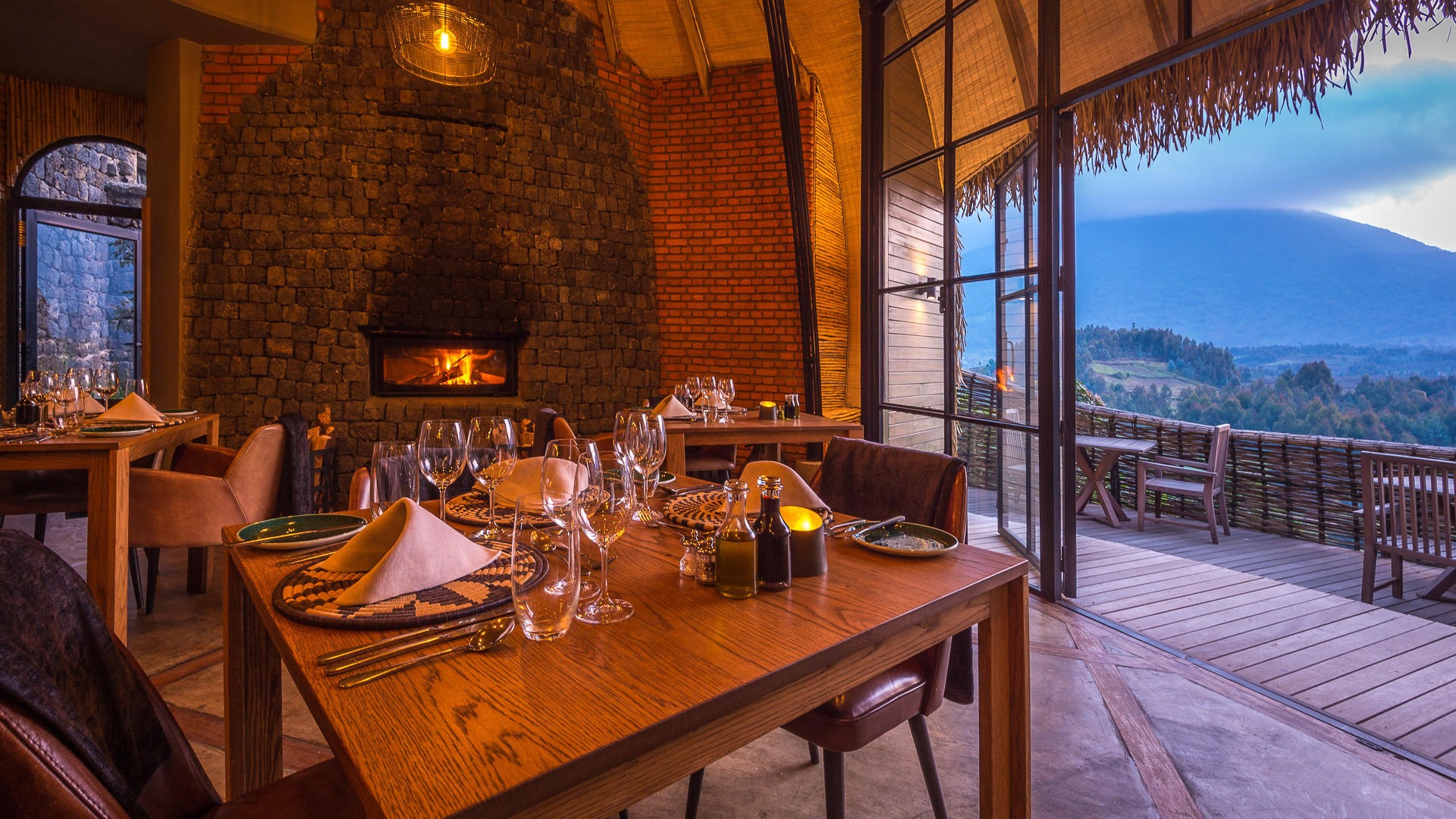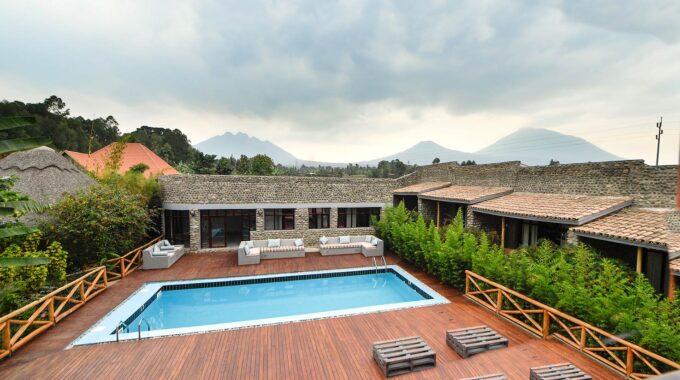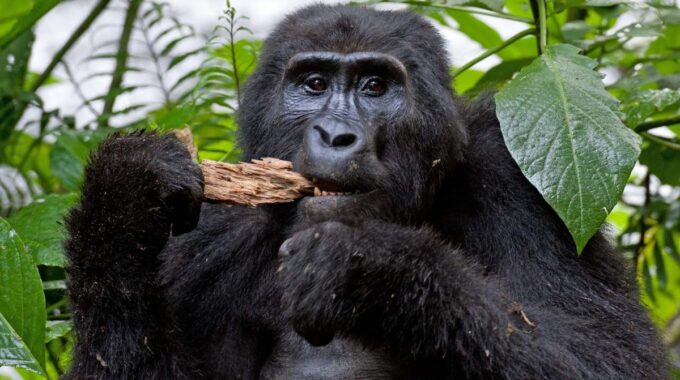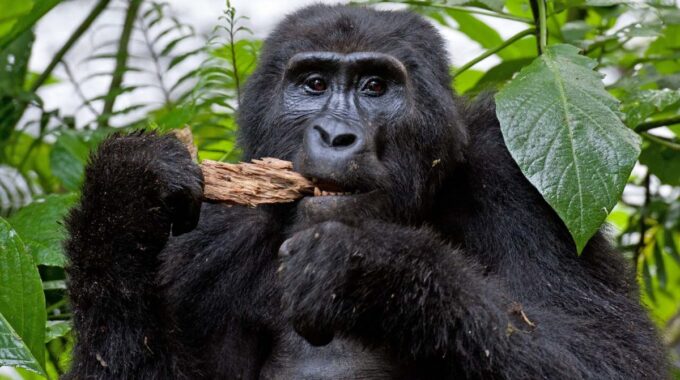Comparing Hotel Amenities and Services: Choosing the Best Stay for Your Gorilla Trekking Adventure. Hotel…
Special Dietary Needs: What to Expect on Your Gorilla Trekking Safari
Special Dietary Needs: What to Expect on Your Gorilla Trekking Safari

Introduction
Special dietary needs for gorilla trekking: Embarking on a gorilla trekking safari in Rwanda or Uganda is widely regarded as a remarkable and transformative experience. However, for those with special dietary needs, concerns about meal accommodations are commonly raised. Whether a vegan, a vegetarian, someone who is gluten-free, or an individual with food allergies, appropriate preparation is essential to ensure both safety and comfort.
Fortunately, special diets are increasingly being recognized and accommodated by most eco-lodges and safari operators in the region. Through advanced communication and coordination, dietary restrictions can be effectively addressed during your journey to see the mountain gorillas in Volcanoes National Park, Bwindi Impenetrable Forest, or Mgahinga Gorilla National Park.
Why Dietary Considerations Are Important
During gorilla trekking, a significant amount of physical exertion is required, and as a result, maintaining proper nutrition becomes crucial. For those managing chronic conditions such as celiac disease, diabetes, or for those adhering to ethical or religious diets, extra care must be taken.
It should be noted that most safari providers—including Gorilla Rwanda Safaris—have become familiar with managing special dietary accommodations and often go above and beyond to meet guests’ requirements.
Types of Special Diets Commonly Catered To
1. Vegetarian and Vegan
Traditionally, vegetarian meals are widely offered throughout Uganda and Rwanda. These meals often include:
- Beans, lentils, and legumes
- Matoke, sweet potatoes, and seasonal greens
- Tropical fruits such as mangoes and pineapples
For guests following a vegan diet, early communication is essential so that ingredients such as dairy, eggs, and animal fats can be excluded accordingly.
2. Gluten-Free
Although traditional staples like rice and plantains are naturally gluten-free, cross-contamination in kitchens could pose a risk to travelers with celiac disease or gluten intolerance. Therefore, it is highly recommended that personal snacks and gluten-free alternatives be brought along when possible.
3. Halal and Kosher
Certified halal or kosher kitchens may not be found in most remote locations. Nevertheless, most hospitality teams are willing to prepare meals in line with these dietary practices by:
- Avoiding pork, alcohol, and non-compliant ingredients
- Using separate utensils and cookware where possible
- Offering plant-based dishes as a safe alternative
4. Food Allergies (Nuts, Dairy, Shellfish, etc.)
Guests with food allergies should be proactive and precise. Although most chefs are experienced with common allergens, potential language barriers and limited ingredient sourcing can lead to misunderstandings. Therefore, written instructions or allergy cards are strongly advised.
Efforts by Gorilla Rwanda Safaris
To ensure the well-being of every traveler, Gorilla Rwanda Safaris takes a proactive approach to dietary accommodation. Every guest’s preferences and medical requirements are carefully documented in advance. Then, meals are coordinated with reputable lodges and trained culinary staff.
Services Offered:
- Pre-arrival dietary consultations for seamless planning
- Customized meals from trusted eco-lodges and safari camps
- Packed lunches suited to your specific dietary requirements
- Accommodation partnerships with facilities capable of gourmet-level substitutions
👉 Explore our personalized safari packages
What to Expect at Safari Lodges
Generally, mid-range and luxury lodges near the trekking parks are well-equipped to cater to dietary preferences. In many cases, these lodges rely on organic produce and sustainable practices to offer healthy, locally sourced meals.
Guests Can Typically Expect:
- Breakfast options that include gluten-free grains or vegan-friendly smoothies
- Buffet or à la carte dinners with clearly labeled ingredients
- Packed meals designed to match special needs for trekking days
- Flexible meal planning in case of sudden dietary changes
Lodges such as Bisate Lodge, Sabyinyo Silverback Lodge, and Sanctuary Gorilla Forest Camp have been consistently praised for their ability to cater to special diets.
Helpful Tips for Travelers with Dietary Restrictions
1. Early Communication is Key
Before arrival, specific restrictions should be communicated to your safari provider in writing. Clarify whether cross-contact must be avoided and what substitutes are acceptable.
2. Bringing Your Own Snacks
Given the rural nature of many lodges, specialty items like gluten-free granola or plant-based protein bars may not be available. Thus, it is advisable that these be brought from home.
3. Carrying Medical Supplies
Items such as antihistamines, epinephrine injectors, or enzyme tablets should always be included in your luggage. Travelers are encouraged to keep these on hand, especially during trekking days.
4. Double-Check Packed Meals
Before heading out for your trek, your lunch should be reviewed. Although most guides are briefed in advance, it’s always better to confirm.
Sample Meal Plan for Dietary Needs
| Meal | Suggested Menu (Vegan/Gluten-Free) |
|---|---|
| Breakfast | Boiled sweet potatoes, fruit salad, herbal tea |
| Lunch (Packed) | Vegetable wrap in gluten-free tortilla, banana, and bottled water |
| Dinner | Stewed lentils, sautéed greens, roasted maize |
Possible Limitations
Despite best efforts, a few limitations may still be encountered:
- Limited access to specialty ingredients in remote regions
- Miscommunication due to language differences
- Unavailability of certain preferred international brands
Nevertheless, with a flexible attitude and a reliable safari operator, these challenges are usually overcome with ease.
Conclusion
Travelers with special dietary needs can rest assured that they will be well taken care of during their gorilla trekking safari in Rwanda or Uganda. With a thoughtful and responsive operator such as Gorilla Rwanda Safaris, your meals will be as memorable as the wildlife encounters themselves.
Thanks to careful planning and growing awareness across the hospitality industry, dietary concerns no longer have to be a barrier to extraordinary travel. Your journey can—and should—be delicious, safe, and stress-free.
Related Blog Posts:
- Meal Planning for Trekking Days
- Packing for a Gorilla Trekking Adventure
- Luxury Lodges Near Volcanoes National Park
- How to Prepare Physically for Gorilla Trekking



